I’ve been increasing my reach. I’m now licensed and contracted in multiple states, though not all, with an amazing lineup of insurance providers, not every one of them but a lot, offering literally hundreds of plans. All in all, my job is to simplify the complex. I’ll be your guide. Here’s what we’ll do …
- I’ll see what you have. We’ll talk about what you like and don’t like about your current situation.
- We’ll discuss solutions, reducing your costs, comparing plans and options.
- I’ll set up an appointment to enroll you.
I meet with all kinds of people – young, old, rich, poor, veterans, married, widowed, divorced, healthy, sick – and of every variety, nationality, lifestyle, faith or opinion. All are welcome. I meet in person, over the phone, on line, in the marketplace – and you may even find me in a kiosk at a pharmacy or putting on an educational event. Book me. I’m easy. I love to teach. And I love to help.
Timing – When Should I Act?
Keep in mind that some forms of health insurance are subject to enrollment periods. Timing matters. And while it is true that I am appointed with multiple insurance carriers offering many plans, I don’t work for the government and I don’t offer every plan that might be available where you live, but I will show you where to find whatever is in your best interest and show you how to compare plans. Sound fair?

Medicare
I currently work with four medicare insurance carriers in my local market with a total of 18 plans. To see all plans and providers, go to CMS.gov. I will help you navigate the site. Timing matters. Neither you nor I ever has enough of it and acting at the right time is required. So I’ll give you an overview right here. Here are the main enrollment periods …
- Annual enrollment is from Oct 15th-Dec. 7th. You can be a first-time enrollee or change plans all you want during this period. It’s my busiest time of the year.
- Open enrollment is from Jan 1st-Mar 31st. During this time you can change one thing, such as changing from one Medicare Advantage plan to another, or reverting back to original Medicare.
- Initial Eligibility Periods normally start three months before the month you turn 65 and last seven months. These have all the flexibility of Annual enrollment periods. It’s a good time to talk to me about things like avoiding penalties for failing to have Plan B or Plan D coverage and whether your sufficiently covered by your employer group plan.
- Initial Eligibility Coverage Periods happen when life events occur, such as losing your employer group plan’s qualifications. Let’s talk about when penalties happen and when they don’t. Don’t be confused. Let me sort it out for you. That’s what I’m here for.
- Special Enrollment Periods usually apply three times a year. You may qualify for one of these. There are a host of things that can trigger them. Did you just come on or off Medicaid? Did you just lose a plan? Do you have a new medical condition that requires a new health network? Were you just institutionalized or released from a facility?
- For more details, see the Centers for Medicare and Medicaid Services website. You’ll find all the specific qualifications for special enrollment periods there. You’ll also find all the carriers and plans for your area on their site. And I’m always happy to help you navigate through it and answer what I can.
Federally Facilitated Marketplace
If you are under 65 or otherwise don’t qualify for Medicare, enrollment periods will be slightly different. Whether you need a comprehensive ACA Qualifying Plan because you have a precondition or because you qualify for Advanced Premium Tax Credits (APTCs) and Cost Sharing Reductions (CSRs), or you want to save money by enrolling in a private plan, enrollment periods are always a consideration. Now, some plans are not subject to enrollment periods. You can sign up all year long. I’ll let you know which ones those are when we meet. Otherwise …
- Open Enrollment Period is from Nov 1st-Dec 15th. Mostly this period is for changing plans to be effective January 1st of the coming year. Sometimes, it is for people who couldn’t make their payments or for some other reason went without coverage and need to start new. Either way, plans are effective Jan 1st.
- Open Enrollment Plan Change Extension is from Dec 16th-Jan 15th. This is a bonus period for those who have paid their first premium after enrolling in a new plan and decide they made a mistake and want to try something else. When this option is chosen, the new enrollment date extends to Feb 1st.
- Special Enrollment Periods might apply all year long. These happen when life events like death, marriage or divorce, birth of children, loss of jobs, or certain changes in financial status occur. Typically, the system will accomodate your needs. It’s designed to get you insured and keep you insured. It’s my job to see how I can work with you to get you the care you may need while reducing your bills as much as possible.

Life Insurance & Annuities
Timing matters with Life Insurance too. You can generally purchase a life insurance policy any time up to a certain age. I have carriers that will allow you to take out a new policy at the age of 89. The general rule with life insurance is that the earlier you purchase it, the cheaper it is and the more value you get out of the policy. That is why I encourage children’s policies and riders. Even so, never purchase more than you can afford. Lapsed policies can sometimes be restored but otherwise they will only have the cash value you’ve built up in them over time. Their face value won’t apply. While both life and health insurance policies typically involve monthly premiums, a lapsed health policy can be renewed the following year. A lapsed life policy, by contrast, will come at a higher price when you buy another one due to your higher age and health risks. Do it while you are younger and healthier, and don’t miss your payments.
There is a lot of variety in life insurance though. One often overlooked type of insurance policy is an annuity. Annuities are also all about timing.
- A whole or term life policy helps your family if you die younger than you would hope.
- An annuity benefits you if you live longer than you can afford.
A life insurance policy involves monthly premiums, while an annuity is typically funded with a lump sum payment all up front. There are other ways of getting annuities rolling, but in every case it’s all about timing. As an example, you may have an IRA or 401K account from your employer that’s been accumulating value, or you may be about to retire. If your retirement funds are tax deferred, with a good annuity plan, you may be able to rollover both the tax deferral status and the value of your funds, protecting your hard earned money and the earnings you’ve accumulated on it from market volitility.
I’ll show you how.
Here I should point out that a good whole life policy and a good annuity have this in common: they both may be indexed to a stock market indicator like the S&P500, enjoying high growth rates and increased cash value. But here’s the kicker: a really good annuity or whole life policy is insured so that if the stock market drops or crashes, the value holds without any loss. Worried about the stock market crashing and killing your retirement fund? If you’ve been hoping to build up a nest egg, it’s critical that you know this. Your 401K may be subject to market loss. Check and see. Why not roll it over into a risk free annuity instead? You’ll have 60 days once you close out a 401K to roll it over into a tax deferred annuity. Timing matters.
Timing is what matters in insurance of any type, especially life insurance. There is no question you will eventually die. You just don’t know how or when. Life insurance is the one type of insurance that pays out 100% of the time. Ironically though. It is the one type of insurance people tend to put off the most readily. They figure that the time to take out a life insurance policy is when they get older. But this is very bad thinking. First, the longer you wait, the higher your premiums will be and the lower the face amount of your policy will be. Second, by paying into a good whole life policy while you are young, you accumulate cash value. As I said, there are some whole life policies that will let you accumulate value based to high performing indeces like the S&P500 while protecting against loss should the market crash at the same time. Where is your money?
An Illustration
Let’s consider Bob. Bob just graduated from Florida State University and has his first job – a pretty good one with X Corp. X Corp. even offers Bob a health insurance plan and a life insurance plan. Life is good and Bob figures he’s adequately covered. He trusts X Corp. and never really looks at the plan. He just knows he only has to pay part of the premiums that get deducted from his paycheck every month. But when Bob turns thirty, he gets cancer and he dies at the age of thirty five. When he first starts feeling sick and gets diagnosed, X Corp. allows Bob sixty days away from work while he gets his first treatments, but eventually they lay him off. At that point, Bob loses both his life and health insurance plan, though he gets a notice saying he can purchase a COBRA plan within 60 days to stay insured. Bob applies for Social Security Disability and Medicaid because he no longer has an income. But he doesn’t qualify for Medicaid because his wife, Sally, is still working. Sally is worried. She not only has to put in a lot of hours helping Bob with his caregiving but she’s afraid she and Bob may lose their beloved house. They have four children now too – Sam (8), Amanda (6), Jan (4) and Peter (2). Sadly, Sally failed to question Bob about his insurance plan with his employer. Neither one of them thought to ask. The company’s life insurance policy turned out to be term insurance that lasted one year and no longer applied when Bob left. Bob was now totally uninsured. In her desperation, Sally, in tears at the thought of uprooting her children from their wonderful home, put the house on the market to cash out – but it was too late. It didn’t sell fast enough. The bank repossessed it while it was still for sale. And that was just the beginning of their problems. Use your imagination to consider what may have happened next.
If only Sally and Bob had taken out a whole life insurance policy. Bob could have borrowed from its value by now. That could have paid for his ongoing health insurance too. Not only did they not qualify for Medicaid, but jointly, they made one dollar too much to qualify for APTCs and CSRs for a nice silver ACA plan. Have you looked up how much it is to pay full price for a marketplace plan for a family with four children? Bob had a pre-existing condition he could have used when he received the offer for COBRA, but without a job, he couldn’t afford the payments. Then after that, no cheaper private plan would take him. But more to my point, because they were young, if Bob had taken out a whole life policy in addition to his group plan with X Corp., he could have owned a very high value plan that offered accelerated benefits. That type of plan would have let Bob borrow not just from the cash value of his plan, but its face amount. Bob was young and healthy when he graduated from FSU and spent what he considered to be his hard earned “spare” cash on family vacations. Nothing wrong with that. Bob and Sally lived for the moment, but they didn’t plan for bad things. With that nice job of his, they could have afforded a million dollar plan. Its living benefits might have paid $800,000 for Bob’s care.
Better yet, lamented Sally, they could have paid for a good indemnity plan that offered cancer benefits and used the policy’s value to refinance their house and save it. They might never have lost their home. Of course, this is all just an illustration. Bob and Sally are fictional characters, but I’ve made this story up based on situations I’ve personally known and heard about. What I want you to understand is that bad things happen to good people. And I want you to grasp the fact that timing matters. Insurance, both life and health insurance, is all about timing. It eliminates the risk of bad timing. That’s why we refer to it as “protecting families.” The time to take care of it is earlier rather than later. The sooner the better.
My Story
If you’ve been following me through the years, then you know that I believe in the maximization of awesomeness. In Season One of my podcast, we asked what maximized awesomeness was. We looked at the purpose of life. We asked what was on your bucket list. We asked what would give your life the most meaning and fulfillment today and in the world you leave behind when your days here reach their limit. I never once talked to you about various kinds of insurance policies that could help you achieve some of these worthy goals in Season One.
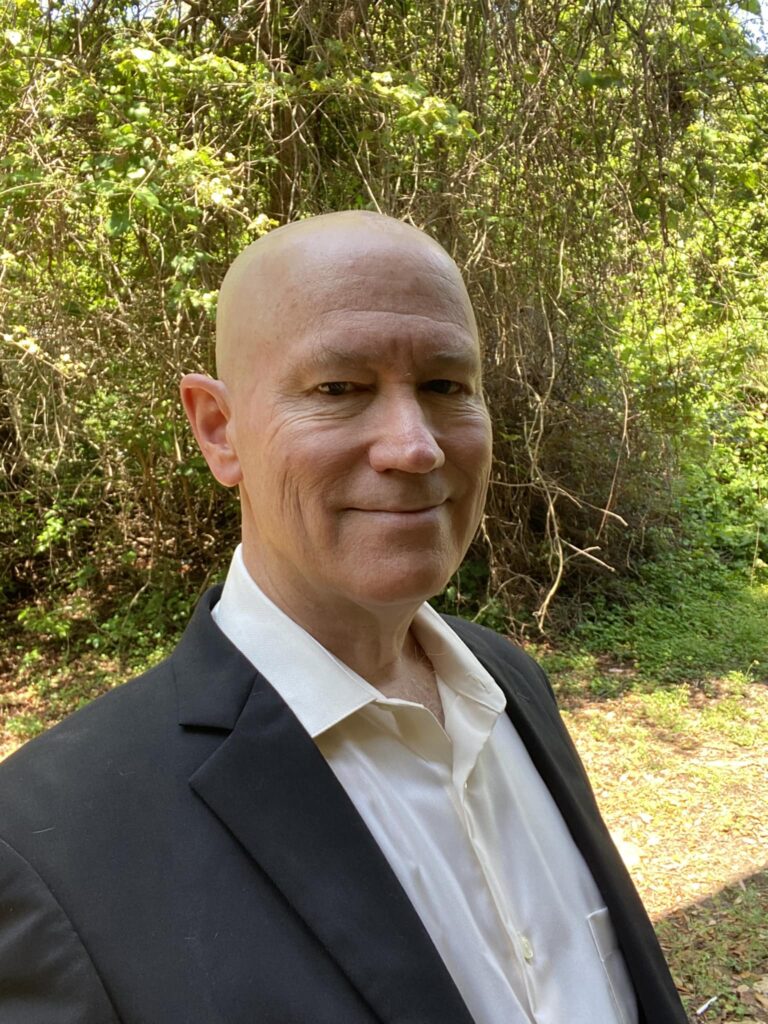
As a dedicated road warrior, I’ve spoken with literally tens of thousands of people about this and here is what I’ve found. Generally, college age adults think they will live forever. It is refreshing to see people living for the moment. Tomorrow is another day. We can all learn a lot from young people. We were all young once. And we know that we don’t need to carry the weight of the world on our shoulders everywhere we go. But alas, graduation does soon come and the reality of struggling with careers inevitably sets in. By age thirty they start thinking about how short life is. Usually it’s the birth of a child that changes a mindset. Then they start counting their days. They add up expenses. They still have a list of thrills and experiences they don’t want to miss out on, places to see, things to do, but their minds start counting, calculating, thinking ahead.
We never lose our youthful heart. It stays inside us when we become responsible adults. Make sure you awaken it every now and then. Let it play. Find your balance.
I’ve found that, for all ages, about seventy percent fail to save and plan well. More than half live paycheck to paycheck and struggle with debt. Am I wrong?
You know I’m right. Some, like Bob and Sally, rise up and lose homes when they suffer from tragedy. And what about that man whose wife is suddenly paralyzed from a stroke when she’s thirty eight? What did he calculate? One thing I’ve discovered is that disability benefits vary greatly. Have you checked to see what your income would look like if you were suddenly disabled, or your spouse? I can show you how. I should share something very sad with you: it’s those with the most modest incomes that receive the most modest disability benefits. Their retirement incomes are lower too.
I know this happens. That thirty-eight year old I just described was my own wife. Since 2003, when her stroke happened, I’ve had a one income family. Not everyone knows this about me and my wife, Lisa. Bad things happen to good people. In Season Two I hope to bring Lisa onto the podcast and introduce her to you.
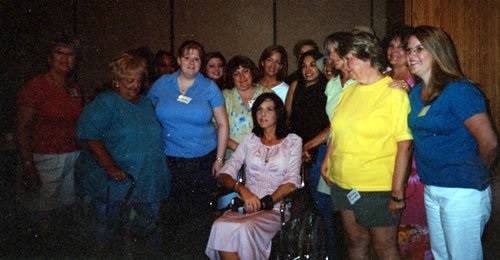
I’m here to tell you that even the Bobs and Sallys of this world can make the best of their tragedy. No tragedy that ever struck me ever stopped me from thinking about making the best of this life, of finding happiness wherever I could. Why not make lemonade out of my lemons? I found a way to help others avoid the nightmare I’ve personally seen. It’s my mission. Ultimately, I look beyond this life and think of the world I will leave behind me. For me, my podcast is a digital legacy, as are the families I protect. I love my wife. And I love my children. And they are not the only people in this world I care about. What I’ll leave behind won’t necessarily be measured in dollars of wealth transferred to my surviving family when I die. I can potentially give to many of the charities I value, as well. And I can show others how to avoid the hardships I’ve suffered. I have every intention of leaving this world a better place than how I found it. How about you?
Think about it. Not everyone I help has a family. But everyone has a legacy. They have an impact, large or small. What will your legacy be? We are all going to leave this world. And when we do, we will either leave it better than we found it when we arrived, or worse. Whatever we may enjoy in this world for ourselves, we are not alone. How much do other people matter to you?
I like to see good things multiply too. If I can teach my children to build legacies of their own, I will have done well. If I can lead well, they will learn. And if I can be no burden to them when I’m gone, then I can bless them with more opportunity – all while teaching other families to do the same. Are you with me?
If you could place a value on how much your family is worth to you, what dollar amount would you put on it?
Author Unknown
Consider the facts. 8% of Americans have no health insurance at all (Statista Research Dept, April 27, 2023) while a much greater percentage are under-insured. Only 52% of Americans own life insurance policies (Annuity.org 2023). Why? Usually it’s because they think they can’t afford it. My goal is to reach them and teach them to save on their healthcare costs. Wouldn’t that more than pay for a good life insurance policy?
Many people don’t think about life insurance until someone in their family dies. As a result, when they think about life insurance, they think about final expenses – the cost of funerals, caskets, plots and cremation is the most obvious part. A funeral with a burial costs up to $30,000 today, sometimes more. The cost keeps increasing. What I’ve seen is that in anticipating this, some will pre-plan. They’ll buy urns and arrange for cremation to save money. Those who’ve lost loved ones before know that those things are just the beginning. What about the cost of air fare for their kin? Aren’t last minute reservations a bit more expensive than ones booked months in advance? They also understand that their grieving family will need to take time off work. That costs money too. And will their body need to be transported from a morgue to another city? Others think more positively. They dream of offering their children a cruise to memorialize them on – anything to remove the sting of death. Buying a generous final expense policy is a really thoughtful gesture of love. Wouldn’t it be nice if their children, spouse and surviving siblings could comfort one another with less daily pressure on a nice tropical vacation rather than a traditional memorial service? Funerals are always family reunions. Why leave everyone you love most in misery? What will your last love message be? What can you do for those you love and those who love you? You may wish to plan for more final expense costs than average. Maybe going out with a “blaze of glory” isn’t your thing. That’s not what I’m suggesting. My point is that people tend to equate life insurance with final expenses and memories. They forget that good life insurance policies offer living benefits too. They can help you amass a fortune. Your “final fiesta” may be just a beginning. Even if you are poor and struggling, let’s build a way out of your poverty trap.
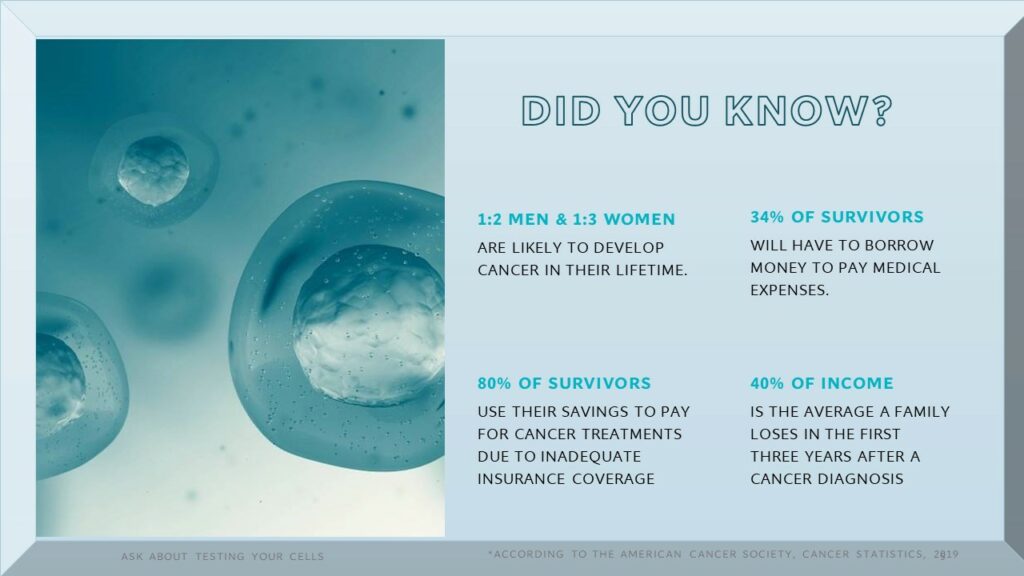
Never say never. As I said, I’ve got carriers that will start final expense policies at the age of 89, but I take a multi-discplinary approach. What usually makes the biggest difference when you are in your silver years is a good health plan. It’s important to plan for this. And whether you are planning or adjusting, we need to talk. My way of thinking is that if we combine living benefits from a whole life plan with reduced cost health, we can leave more for our families and our legacies. High end-of-life hospital bills can be paid for by insurance, rather than passed onto our families as collectible debt. You should be aware that whole life plans do one thing health plans don’t. They prevent creditors from having first dibs on your family’s inheritance. Creditors can’t touch whole life benefits. Not the IRS. Not anyone. The full amount goes straight to the designated beneficiaries, usually within days – even if you’ve failed to write a will and your estate is in probate. My approach is to help in every conceivable way. Avoid probate.
(Speaking of probate … please take this advice. Get a good whole life policy and do it when you are young so that it has value. And then on top of that, write a will. Get a good estate attorney to help you if you can afford one. You do not want your estate in probate. Otherwise, the lawyers and the state will tie it up and raid the kitty. This places tremendous grief on survivors. It often has disasterous results. And it can leave families shattered).
Timing is also important in the decision between whole life and term life policies. Some people take out huge term-life policies at very low cost. That’s probably a very good idea. It protects their beneficiaries from calamity should they die suddenly soon afterwards. Term products rock. They are especially useful for accidental deaths. But there’s always a debate about which is better: term or whole-life. I don’t want you to be ignorant of this. Which one wins? The answer depends on what happens. If we could predict the future, that would make these decisions much easier.
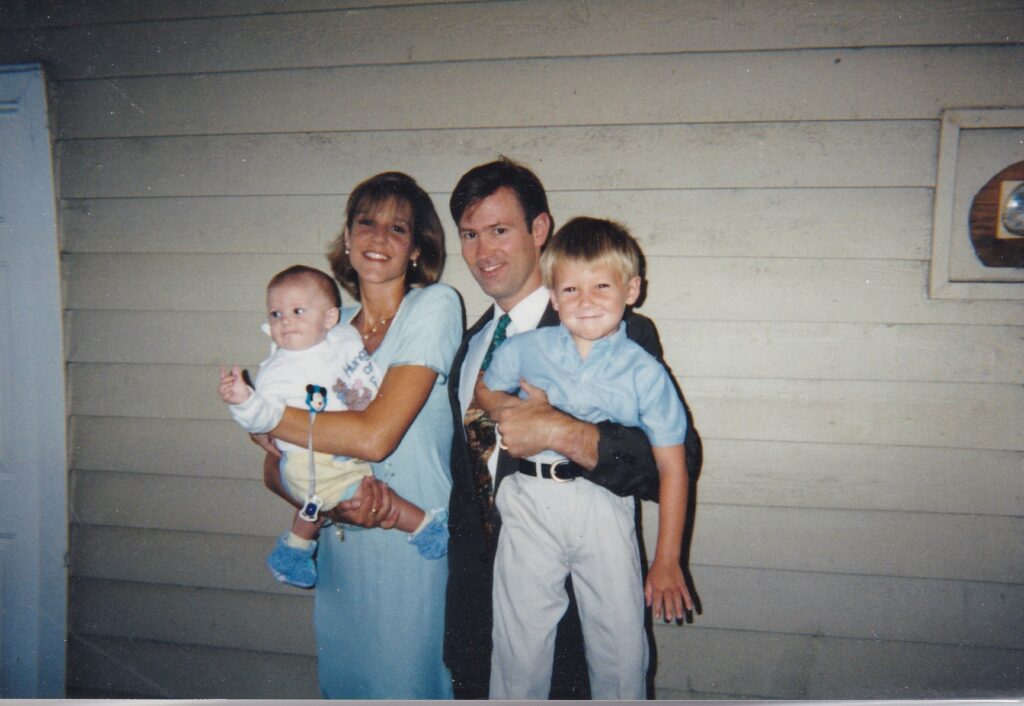
Or maybe, you don’t have to decide. One insurance carrier I work with offers a term product that converts to whole life at the end of the term. Others offer cash back on premiums. All the money you put in comes back at the end of the term. You can buy terms from ten to thirty years. The difference between term and whole-life is that with “term,” at the end of the term you have no insurance. It’s all about timing. If you out-live your term policy but want to remain insured it can get expensive because you’ll need a new policy. This can be exceptionally expensive if by the end of your term you are in poor health.
Once again, your age is always a factor in how much insurance costs. The older you get, the more expensive it is. Also, if you do start to have health issues, like high blood pressure, diabetes, cancer, stroke and so on, both life and health insurance will cost more and the amount of protection you can offer those you love will decrease. Be aware that if you smoke or use nicotene products, including vapes, your costs will go up by as much as 100% on top of that. But I have some good news. I also work with carriers who give you a few years to quit and lower your premiums to non-smoker rates from day one. Is your family worth quitting tobacco for? If you could place a value on how much your family is worth to you, what dollar amount would you put on it?
People often say they can’t afford insurance. If for the cost of a cup of coffee a day you could prevent your spouse or child from resenting you for ther rest of their life for leaving them with tremendous unplanned-for expenses when you died because you bankrupted yourself to pay for your medical expenses, would you give up your daily trip to Starbucks to save a few dollars on coffee? Would you give up your alcohol? Your cigarettes or your vape? What about your junk food and sugar?
Maybe your answer is no. You can’t. So what about this? … What if I could help you build your legacy simply by reducing the cost of your health insurance? What if I could help you eliminate your annual deductibles, copays and out of pocket costs while lowering your premiums? You might not even have to give up your vices. Whether you do or you don’t, I do research constantly on how to help people – people like myself – people who know the struggle is real.
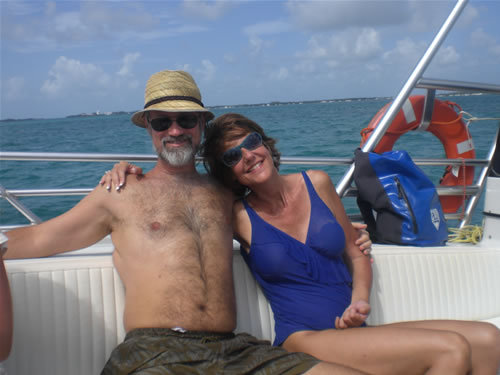
Let me teach you what I’ve learned. The nice thing about whole-life insurance is that it is a sure bet. You’ll definitely die one day. The question always comes down to what level of monthly premiums you can afford. You don’t want your policy to lapse. That’s the only way it won’t pay out. But there are riders like “waiver of premium”that some of my carriers offer too. Well planned riders can help you keep your payments going so you reduce or eliminate the risk of your policy lapsing. You can also build up cash value in many whole life policies sufficient to pay your remaining premiums. Cash value can be used to collateralize loans if you need money when life throws you curve balls down the road too. Some people also use the cash value in their whole life policies to secure mortgages, or even start businesses. They might also use it to offset their medical expenses and pay off high interest loans with lower rates. It’s your money. Just be aware that anything you’ve borrowed from your whole life policies will be repaid when you die, if not beforehand. It will be deducted from the proceeds to your beneficiaries. If you don’t borrow from it, you’ll have both a growing asset and an insurance policy. And in fact, your policy can still grow while you are borrowing on it. Is that amazing, or what?!
Annuities & Living Expenses
Life insurance helps us think about what happens when we pass away early. It plans ahead for bad things and it can be a great savings plan with dividends higher than common investments, but as I mentioned above, there is a mirror side to that. It’s when we are healthier than average and live longer than we expected to. Oddly, being healthy and living longer can be a burden on others too, because our retirement income sometimes expires before we do. But there is a perfect product for that – annuities. Like insurance, annuities come in many shapes and sizes. Some are tax deferred on the front side as you contribute to them. Others wait to tax you when you start withdrawing the money you saved. Typically, this happens when you are in a lower tax bracket. It’s all about timing. At age 59 1/2 you can start withdrawing your funds on a monthly basis without penalty and you have to take a minimum distribution once you’re 73. Penalties on annuities run 10% of the amount withdrawn prior to age 59 1/2.
Okay bottom line. I am a licensed insurance broker who can offer many types of products. What I don’t offer at this time is any products that put investors at risk of losing their money. Call me.
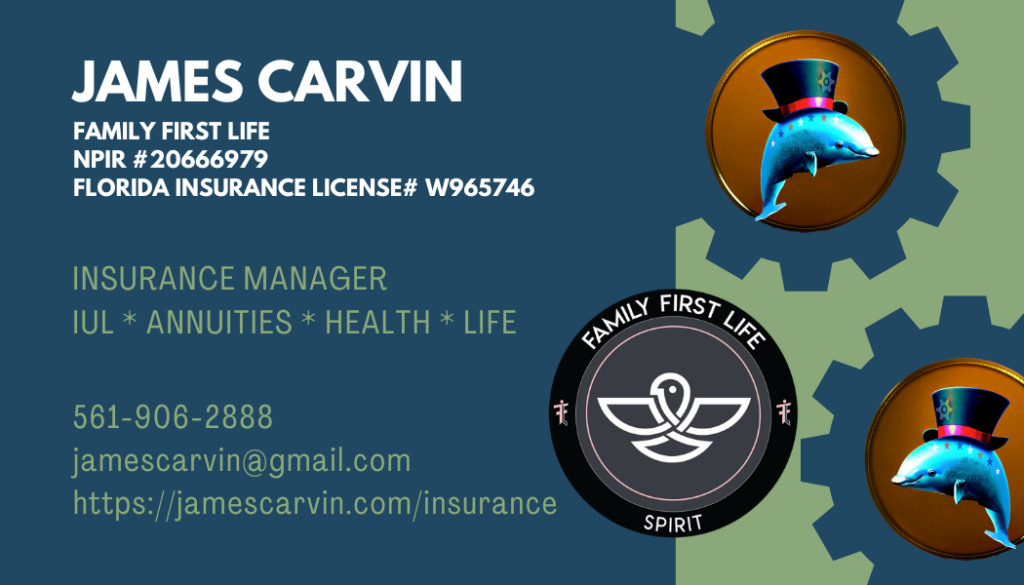
~ CALLING THE NUMBER ABOVE WILL DIRECT YOU TO A LICENSED INSURANCE AGENT ~ NOT AFFILIATED WITH OR ENDORSED BY THE GOVERNMENT OR FEDERAL MEDICARE PROGRAM. Participating sales agencies represent Medicare Advantage [HMO, PPO, PFFS, and PDP] organizations that are contracted with Medicare. Enrollment depends on the plan’s contract renewal. We do not offer every plan available in your area. Currently we represent 4 organizations which offer 18 products in Leon County and multiple organizations and plans in other counties and states. Please contact Medicare.gov, 1‑800‑MEDICARE, or your local State Health Insurance Program to get information on all of your options. James Carvin lives in Tallahassee, Florida. He has been hosting a podcast since December, 2021 on the philosophy of awesomeness. He has also been developing a course in "Applied Awesomeology" that he hopes to introduce as a freshman level collegiate philosophy course. He contracts through multiple field marketing organizations, including Family First Life, Benzy and the Kellogg Insurance Group. Florida insurance license #W965746, Georgia license #3650990, Virginia license #1398323, Texas Licenses #3069623 and #3069636, Arizona license #20666979 and California license #4328990. NPIR #20666979
